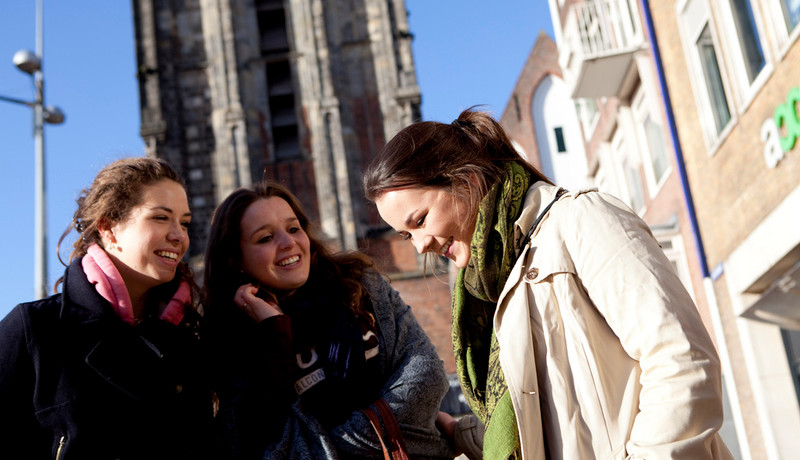Global Health

Global Health
- Level
- Language
- English
- Credits
- 30 ECTS
- Startmonths
- Start: February
- Locations
- Groningen
The programme Global Health offers you the unique opportunity to familiarise yourself with an increasingly globalised world and its effects on health.
About this programme
* The English taught programmes Global Health and Healthy Aging will not be offered in the first semester (start September) of the academic year 2024 - 2025, due to an update of the curriculum.
The programme Global Health offers you the unique opportunity to familiarise yourself with an increasingly globalised world and its effects on health. The programme focuses on trends in health and health care viewed from a global perspective, and the challenges that we as health professionals will face over the next 10 years and beyond. How do these developments relate to the desire to live longer while staying healthy and active as we age? How can we cooperate on an international level to organise prevention and self-management? How can we encourage healthy behaviour in such a way that everybody receives the care they need, not only in the Netherlands but in other countries around the world?
The programme Global health brings together a range of disciplines such as epidemiology, sociology, cultural studies, technology, public health reflecting the collaborative approach in addressing the key health concerns that adversely affect human populations.
The framework of the programme consists of the following inter-related modules:
Future of Health
How do societal developments in health care impact individuals and populations? What measures can be taken to ensure healthy ageing? Preventative steps and self-care? What processes of growth, change and stability will we be dealing with as we age? This module examines future challenges faced by health care professionals of the future.
Assessment: Essay
Health & Technology
Here we look at how e-health and health technology can successfully contribute to changes in health care. In part as a result of an ageing population, the need for cost effectiveness, knowledgeable and empowered patients – there is an increasing need and demand for self-management. The ways in which E- health and health technology can contribute to the various challenges facing health care systems and health care delivery are key aspects of this component.
Assessment: Infographic/ Presentation/ Debate
It takes into account the influence of wider aspects such as globalisation, social determinants, health systems and international policies that lie outside the direct sphere of influence of an individual or population. The newly acquired knowledge can be used to set up effective strategies for policy advice in one’s own professional field.
Assessment: Written report.
Culture and Health
This module provides cultural insights related to health, disease, the body and ways of communication and allows opportunities to improve intercultural skills. Here you will also explore how your own perspectives are shaped by cultural background and experiences.
Assessment: Digital story telling/ Reflective report
Innovation Project 1 & 2
The programme additionally prepares you to cooperate in international, multidisciplinary teams by executing a real project about a health problem in an international context. Within this integral task, which makes up the core of the programme, you will develop a health solution for a Global Health problem in a group setting. The project module is a compulsory component in the first period of the minor and runs for 10 weeks. This allows you to work together in small groups, following the stages of the design thinking approach to find an innovative solution to a real life problem.
Assessment: Product/ Report/ Presentation
ALL modules are 5 credits and run for a period of 10 weeks. The module Global Health is also offered as a single “stand alone” module.
Before you can start
- You are a third-year of fourth-year student (Bachelor level undergraduate or associate degree).
- You have completed your first year of your education and have obtained at least 45 ECTS in the main phase (year 2, 3 (or 4)).
- Language requirements
• Academic IELTS 6.0 overall
- You have experience with project management and you have developed research skills. No general education on these two topics will be offered.
You will need to work in an international interprofessional multidisciplinary team and master the English language (graduation level secondary school). Useful additional personal characteristics for participation in such a team are: an open mind, the ability to listen actively, tolerance, flexibility, transparency in motives, interests and values.
How to apply
Check www.hanze.nl/applicationexchange for the application details.
Admission & application
Please check with your home university whether there is an agreement set up with the Hanze School that is offering the exchange programme of your choice. To apply for and be admitted for our exchange programme you should take the following steps
-
1. Be nominated by your home university
Once you have been nominated, your nomination will be checked by us and confirmed to your home university by email. You will receive your application link during our application period.
-
2. Submit your online application
Once you have been nominated by your home university you will receive a personal application link and the application instructions during our application period. The application is fully digital and documents do not have to be send by email or postal mail. Make sure you do not miss our application deadline!
-
3. Letter of Acceptance
Once you have submitted your application we will check your documents. If you have to re-submit any documents, we will let you know. We will be sending out Acceptance Letters from the beginning of May when you start in September and from the middle of October when you start in February.
Find out more about our application process and practical matters.
Frequently Asked Questions
Contact
-
Contact exchange programme Global Health



